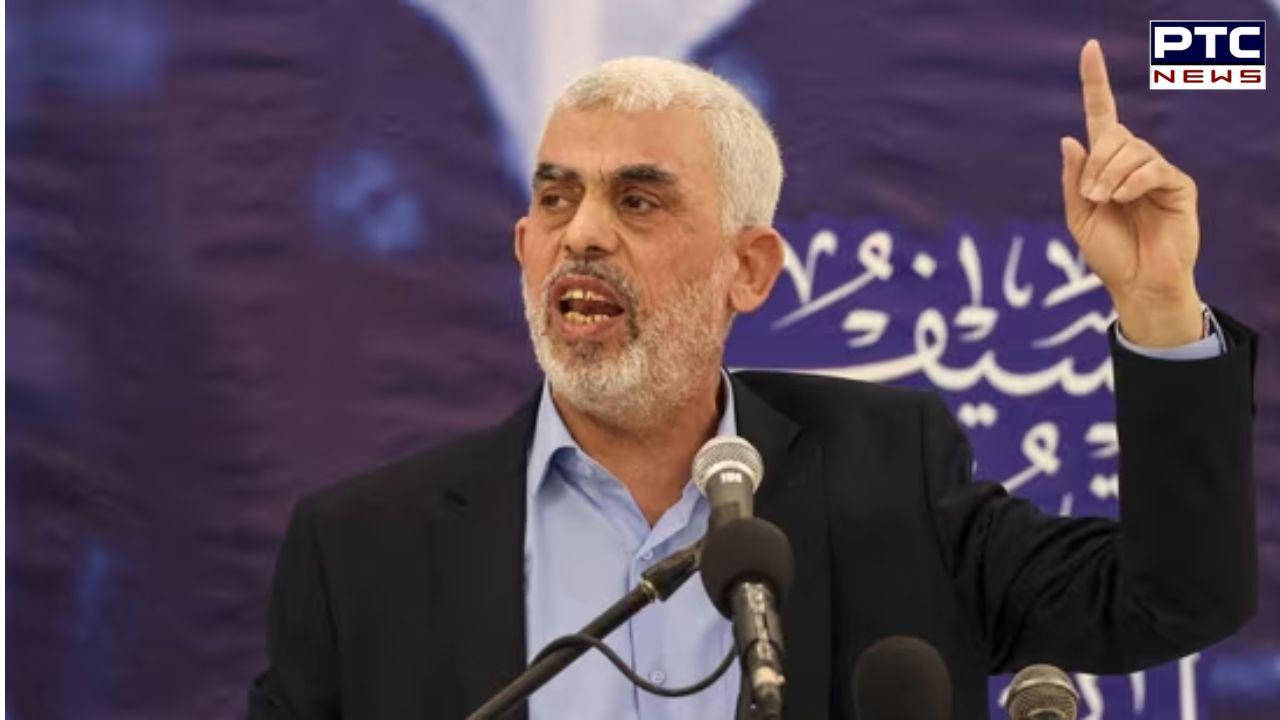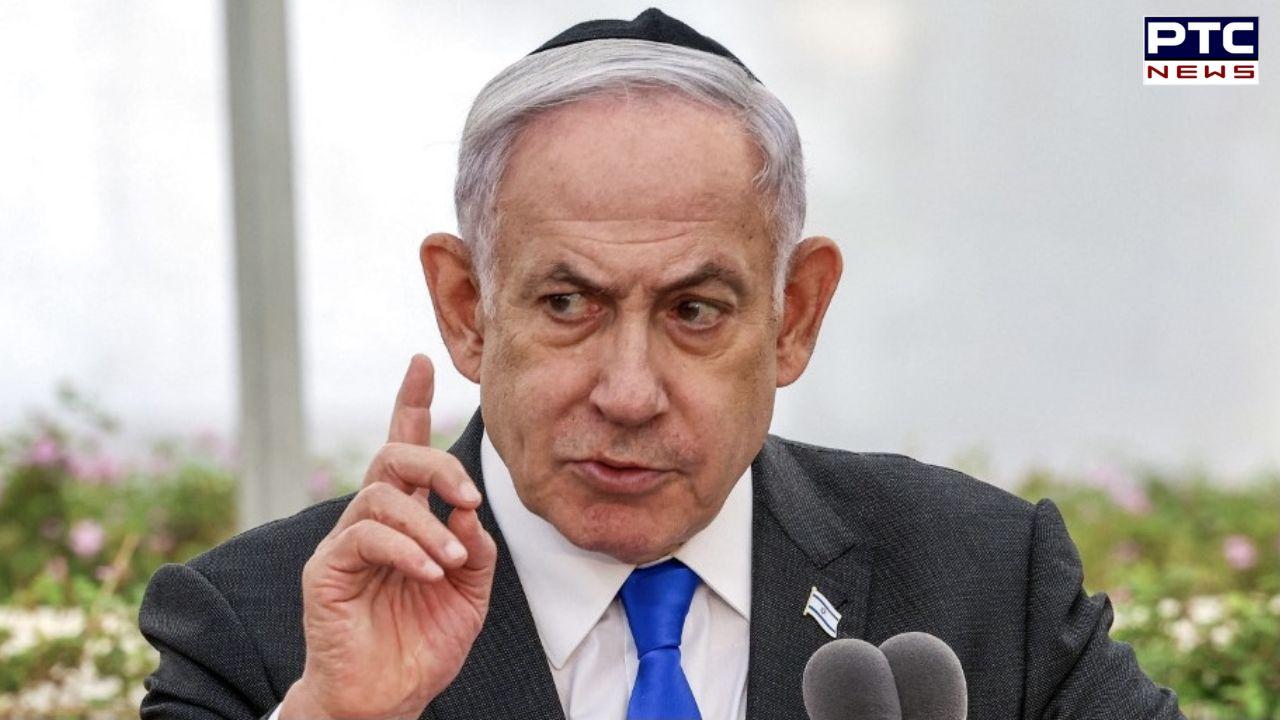Yahya Sinwar killed: A key player in Israeli-Palestinian conflict; know why his death is significant?
He was the mastermind behind Hamas’s October 7 attacks against Israeli civilians, which reignited year-long conflict in Gaza
PTC Web Desk: In a video statement released on Thursday, Israeli Prime Minister Benjamin Netanyahu confirmed the death of Yahya Sinwar, the leader of Hamas, during a targeted military operation in Rafah on Wednesday. The announcement comes as a critical moment in the ongoing conflict between Israel and Hamas, marking what Netanyahu described as the “beginning” of the end of hostilities.However, he stopped short of declaring a complete ceasefire, stating that Israeli military actions would continue until all hostages are released.
The Israeli military shared drone footage purportedly showing Yahya Sinwar’s final moments. The video captures a wounded militant hurling an object toward a drone before being neutralised. Sinwar’s death has elicited strong reactions from regional actors and international leaders, with significant implications for the balance of power in the Middle East.

Who Was Yahya Sinwar?
Yahya Sinwar, a prominent figure in the Palestinian militant group Hamas, was known for his strategic acumen and hardline stance against Israel. Born in 1962 in the Khan Younis refugee camp in the Gaza Strip, Sinwar co-founded the Izz ad-Din al-Qassam Brigades, the military wing of Hamas. He was known for orchestrating various operations against Israeli forces and civilians, making him a key player in the Israeli-Palestinian conflict.
Sinwar was jailed in Israel for more than two decades for his role in orchestrating the killing of Palestinian collaborators. He was released in 2011 as part of the Gilad Shalit prisoner exchange deal between Hamas and Israel. Following his release, Yahya Sinwar rapidly ascended the ranks within Hamas, becoming its political chief in Gaza in 2017.
Yahya Sinwar was believed to be the mastermind behind Hamas’s October 7 attacks against Israeli civilians, which reignited the year-long conflict in Gaza. Known for his uncompromising views, Sinwar’s leadership of Hamas emphasised armed resistance against Israel and opposition to diplomatic negotiations. His death now raises questions about the future leadership of Hamas and the group's strategic direction
Why Yahya Sinwar’s death is significant?
The elimination of Yahya Sinwar marks a critical moment in the ongoing conflict between Israel and Hamas, carrying implications for both the region's power dynamics and the broader geopolitical landscape. Sinwar’s death represents a substantial blow to Hamas, particularly after the earlier loss of key leaders Ismail Haniyeh and Mohammed Deif in July 2024.
Sinwar stepped into the leadership role following their deaths, guiding Hamas through one of its most tumultuous periods. With Sinwar's removal, Hamas has not yet announced a successor, leading to uncertainty within the group's command structure. The absence of a clear leader may disrupt coordination within Hamas and potentially weaken its operational capabilities.
For Hamas’s allies in the region, including Iran, Lebanon’s Hezbollah, and factions in Yemen, the loss of Sinwar complicates their efforts to maintain a unified front against Israel. Tehran's mission to the United Nations has already issued a statement condemning Sinwar’s killing, arguing that it would only strengthen "resistance" movements in the region. Despite this rhetoric, Sinwar’s absence may hinder these groups' ability to coordinate their anti-Israel efforts effectively.
According to US State Department spokesperson Matthew Miller, Sinwar had been a primary obstacle in the negotiation process, allegedly refusing to release hostages and resisting the United Nations' ceasefire proposals. With his elimination, US officials believe they have a better chance to mediate peace talks and work toward a resolution.
 On the other hand, Israel’s military operations are expected to continue, with Netanyahu reiterating that actions would only cease once all hostages are safely returned.
On the other hand, Israel’s military operations are expected to continue, with Netanyahu reiterating that actions would only cease once all hostages are safely returned.
Meanwhile, Sinwar’s death also has broader implications for regional stability, as it disrupts the alliance network that has supported Hamas. Iran, which has long backed Hamas with financial and military aid, may find itself compelled to recalibrate its strategy in the region. Tehran’s statement that Sinwar’s killing would intensify resistance is a signal of its intent to continue supporting anti-Israel efforts. However, the loss of a key figure like Sinwar may complicate coordination among these resistance groups, potentially creating a power vacuum that could lead to infighting or a restructuring of alliances.
On the other hand, Israel’s military operations are expected to continue, with Netanyahu reiterating that actions would only cease once all hostages are safely returned.